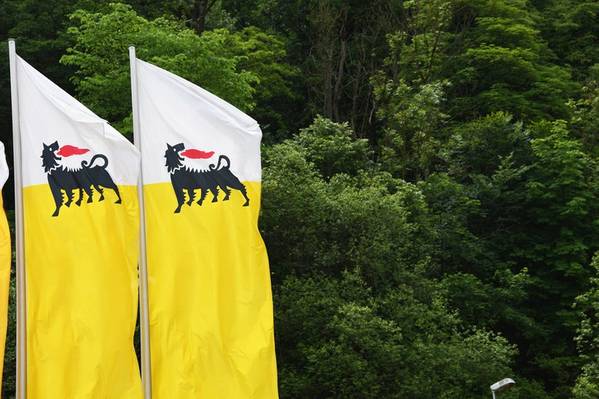
Italy's Eni said on Thursday it would embrace transition by creating separate units specialising in carbon capture and bio chemicals, adding to already existing renewable energy and biofuel subsidiaries.
The four units would eventually attract investors or be listed on the stock exchange under the group's so-called satellite model.
"This is our strategy to energy transition, creating units that can generate value and attract investors... instead of relying on subsidies," said Eni Chief Executive Claudio Descalzi talking with journalists at the end of a presentation to analysts.
Earlier this year Eni signed a deal with Energy Infrastructure Partners under which the Swiss investment fund bought a minority stake in the group's low-carbon unit Plenitude, valuing the subsidiary around 10 billion euros including debt.
"Enilive will follow the same path of Plenitude," Descalzi said, adding the biofuel unit could have an enterprise value equal to between 8 and 10 times its earnings before interest, taxes, depreciation and amortisation (EBITDA).
It could eventually be listed on the stock exchange.
The development of the carbon capture and storage (CCS) and the bio-chemical businesses will come later, Descalzi said, adding that the multiple for the CCS could be between 6 and 8 times its expected EBITDA.
"The carbon capture business has already the critical mass to become a separate business," Descalzi said, adding that the completion of the Neptune Energy acquisition would bring CCS assets in different geographies into Eni.
A carbon capture project to be developed with Italian gas grid operator Snam would enter its pilot phase in the coming months, the CEO said.
CCS technology removes from the atmosphere carbon dioxide (C02) produced by industrial processes or captures it at the point of emission and stores it underground.
The International Energy Agency (IEA) says it can play a vital role in achieving global climate goals. However, critics say it risks prolonging the use of fossil fuels and question whether it is commercially viable.
Taking into account the development of these units and also potential disposals of stakes in big exploration projects Eni estimated it would raise 8 billion euros in net proceeds between now and 2027.
IMPROVED PAYOUT
In its updated strategy, Eni increased the payout for investors, but sounded a cautious note on its gas and LNG business and its cash flow generation, prompting a lukewarm reaction from investors.
The state-controlled group said it would distribute between 30% and 35% of its cash flow from operations (CFFO) to shareholders, up from a previous 25-30% of CFFO in last year plan.
For this year's results, the group will raise dividend to 1 euro per share and buy back shares worth 1.1 billion euros.
Other big oil groups including Shell, Chevron and TotalEnergies have also increased their dividend in the fourth-quarter results, while bp increased the rate of its buybacks.
Eni said earnings before interest and taxes (EBIT) for the gas and LNG division (GGP) for this year is now seen at 0.8 billion euros, substantially lower than what analysts had pencilled in.
"On first glance, Eni's updated corporate plans look weaker than expected, given weaker 2024 CFFO and GGP guidance," Royal Bank of Canada's analyst Biraj Borkhataria said in a report, adding the increase in the payout ratio was largely expected.
Eni said it expected to generate cash flow from operations before working capital of around 13.5 billion euros in 2024 and 62 billion euros over the plan, down from over 69 billion euros expected in the previous strategy.
"Similar to last year, we see the annual update driving a reset lower in consensus expectations, although this could lead to a buying opportunity similar to last year if Eni can deliver above its targets," the analyst added.
Shares in Eni closed down 3%, underperforming 0.3% drop in Milan blue-chip index.
(Reuters - Reporting by Francesca Landini, editing by Gavin Jones and Keith Weir)



